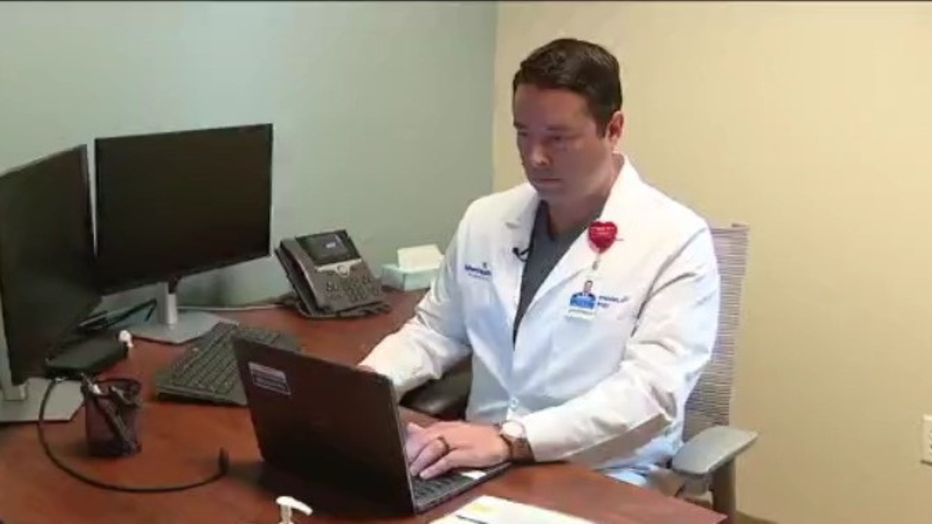Carrollwood doctor works to break down barriers with minority patients seeking health care
TAMPA, Fla. - April is National Minority Health Month, and its goal is to put a focus on making sure families in Black, Asian and Hispanic communities get the care they need as various health disparities persist.
A doctor in Carrollwood, Dr. Eduardo Hernandez, said he’s had patients share that they waited years to treat a condition, because they couldn’t find a provider who spoke Spanish, so he made some changes to break down barriers to health care.
Four months in, the AdventHealth urologist quickly learned the community he cares for in Carrollwood.
"I would say that right now, just off the bat, we may be seeing like 50% or more Hispanic patients every day," said Hernandez.
As a bilingual urologist, he said he’s part of a group that’s difficult to find.
"So, in Orlando, people would tell me how much they appreciate it that we were bilingual, that we could provide care in Spanish. And they would drive sometimes hours to come see us," said Hernandez.
So since beginning his work in Tampa in January, he made sure he hired some clinical and office staff who can speak Spanish.
MORE: Costco launches weight loss program for members
"There really are patients who tell me, ‘hey, I’ve had this condition three, four years, I just hadn’t found anyone to see me and be able to discuss it in Spanish,’" said Hernandez.
Language is one of the barriers that can impact health outcomes in minority communities. April is National Minority Health Month, which raises awareness about health disparities and how to reduce them.

Dr. Raj P. Kotak said it starts with building relationships.
"The trust in our physicians, in our providers, that is always something that I look at, particularly with my role. I think that we need to make sure that our patients and our communities trust us, understand what our goals are is their health," said Dr. Raj P. Kotak, the chief medical officer at AdventHealth Carrollwood.
Barriers to access and gaps in level of care still persist, and that can spell danger for minority groups who are at higher risk for certain conditions.
READ: Pig kidney transplanted into man in surgical first
When it comes to maternal mortality, the Centers for Disease Control and Prevention said Black women are three times more likely to die from a pregnancy-related cause than white women, and Black Maternal Health Week runs from April 1-17.
The Prostate Cancer Foundation said Hispanic/Latino men are less likely to have a regular doctor and receive treatment. Cleveland Clinic said Hispanic, Black and Asian American adults are more likely to develop diabetes, a risk factor for heart disease, than white adults, which is a risk factor for heart disease.
"Indians, our ethnicity lends us smaller vessels, the heart vessels, the coronary vessels are always smaller, because we’re a smaller population of people. So that affects us much differently," said Kotak. "The food we eat, the lifestyle that we have as Indians, lends us a different, a more increased risk, let’s say, of heart disease, of cardiac problems, things like that. We target that differently, whether it’s medications, whether it’s recommendations and whether it’s things we just watch out and screen for."
Helping everyone feel better is the reason the doctors said they got into medicine.
"Sometimes when the patient actually verbalizes that, it kind of gives you reassurance that you’re doing the right thing for them," said Hernandez.
As this month focuses on health, there is some advice doctors have for everyone.
"No matter who you are, where you come from, what your background, ethnicity, get preventive care," said Kotak. "Preventive care is the very best way to make sure that whatever health challenge you face, that you have the best care and you have the best opportunity to overcome them."
SIGN UP: Click here to sign up for the FOX 13 daily newsletter

